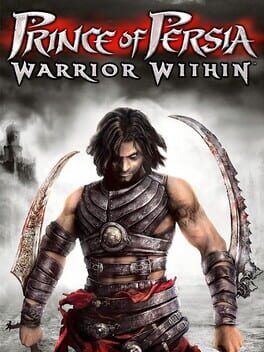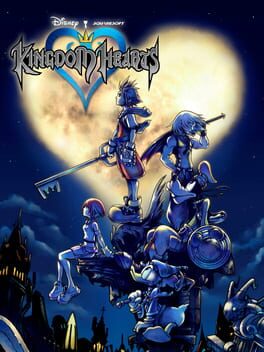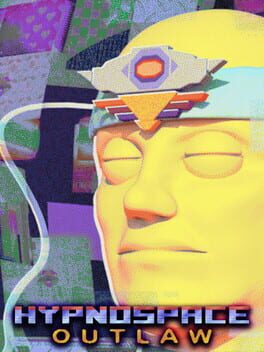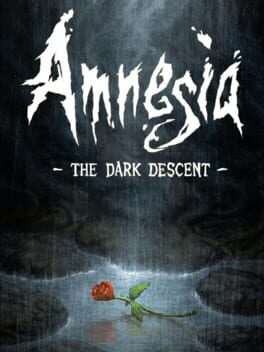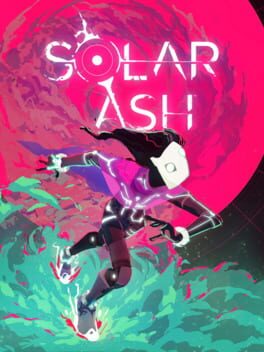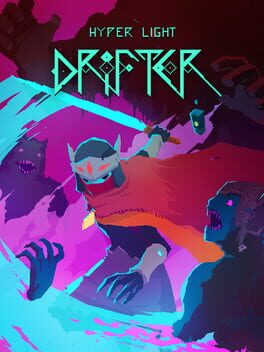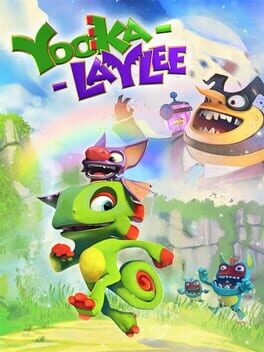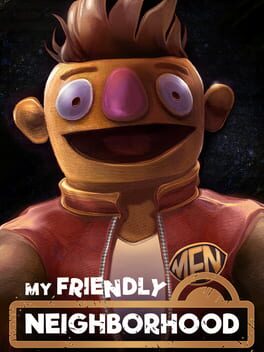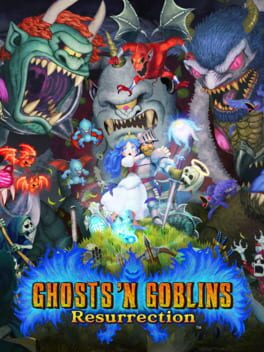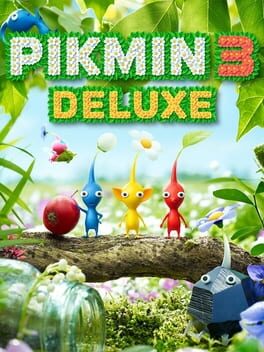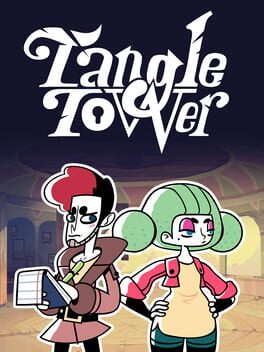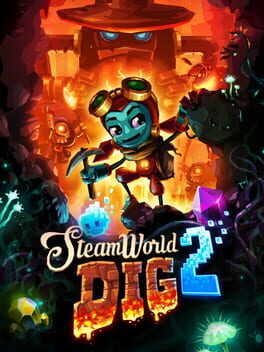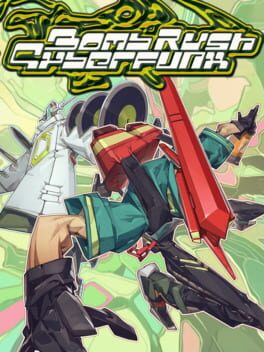Gerborious
Smells like cigarette smoke and cheap alcohol. Deadly amounts of edge, actively making the experience anti-charismatic. The combat has more "depth", but entirely for the worse. It's fine when you are allowed to platform around, until you are required to redo segments multiple times. Quit during the final boss when I realized that there wasn't anything else in the game that I would likely enjoy.
2002
A good portion of the conversation surrounding Kingdom Hearts is focused on its blatant absurdity. The concept alone is so appalling that it obscures a lot of the series' more interesting qualities. It's like a rhetorical black hole. I wonder if, in a theoretical future where Disney loses the copyright to many of their characters, this series will take on a whole new meaning. Will future players see this game's retellings of classic Disney films in the same way we see ancient myths today? How about how we feel about more recent creations like Sherlock Holmes? A lot of weight to be putting on the shoulders of the funny car key sword game, I know, but I found it an interesting thought experiment.
I'm focusing more on the concept of the game, rather than the actual content of it, simply because I don't love any specific parts of this first entry. The combat is fun and challenging if you choose to play on the hard difficulty, and the levels are fun to explore. The story is cute, blazingly earnest, and surprisingly simple. There are some sore spots to be sure, but I don't think it's fair to judge a game off of uncharacteristically poor parts.
I'm focusing more on the concept of the game, rather than the actual content of it, simply because I don't love any specific parts of this first entry. The combat is fun and challenging if you choose to play on the hard difficulty, and the levels are fun to explore. The story is cute, blazingly earnest, and surprisingly simple. There are some sore spots to be sure, but I don't think it's fair to judge a game off of uncharacteristically poor parts.
2019
I really wish that I loved this more than I did. It's ultimately on me, I knew a lot of the iconic moments coming in so it makes sense that it was ultimately less impactful. There also may be something to the fact that I have absolutely zero experience with this era of the web. I wonder if we'll ever see completely faithful recreations of the early 2010's internet?
God Amnesia falls off so hard partway through and it makes me actively sad. Trust me, for the first few hours, the atmosphere was killing me, I was in the palm of Frictional Game's hand, and they could do whatever they felt like. For example, the section with the iconic water monster was still extremely tense for me, despite the fact that every person on the internet knows how it works.
Unfortunately, the tension of Amnesia is simply an extremely thin veil. Death has no actual consequence, and when I realized that, the tension drained away as quickly as it was built up. Funnily enough, making the game more mechanically dense also makes it more immersive for me, especially in a horror context.
At the end of the day, skill put into the atmosphere should absolutely be commended, and I think the game is really good outside of the lack of punishment. I really enjoyed managing my light, and would love to see other games that play with the concept. Though, small request, maybe don't make the screen look like vomit whenever a monster comes by, or for any reason really?
Unfortunately, the tension of Amnesia is simply an extremely thin veil. Death has no actual consequence, and when I realized that, the tension drained away as quickly as it was built up. Funnily enough, making the game more mechanically dense also makes it more immersive for me, especially in a horror context.
At the end of the day, skill put into the atmosphere should absolutely be commended, and I think the game is really good outside of the lack of punishment. I really enjoyed managing my light, and would love to see other games that play with the concept. Though, small request, maybe don't make the screen look like vomit whenever a monster comes by, or for any reason really?
2021
I really wanted to be that guy for Solar Ash, the one person who champions a piece of media that received a fairly middling reception. Unfortunately, my feelings for it are much more, well, middling. If you were to take a scan of my brain, and somehow generate a game out of it, Solar Ash wouldn't be very far off. In concept, this game owns, but in practice it needs a lot more work.
The biggest mark against the game is a lack of mechanical progression. I had a moment during the final boss where I wondered whether the platforming I was doing was meaningfully more difficult than the platforming for the first boss. The spectacle has been enhanced, absolutely, but with how the game handles the majority of the steering and pathfinding to compensate for the massive shifting landscape, I don't believe the challenge had been meaningfully heightened.
Solar Ash has many of Hyper Light Drifter's qualities. The visual design is immaculate, same with the soundtrack. The control of your character is fun, responsive, and satisfying. The areas you explore are wonderfully designed, and sized perfectly to encourage exploration, with how fast you move. What Solar Ash lacks in comparison to Hyper Light Drifter, is a solid challenging core. HLD's combat was consistently engaging and challenging, ramped up over the course of the game, and had different ways for the player to express themselves through build options. Solar Ash's platforming doesn't stand up to this standard.
The biggest mark against the game is a lack of mechanical progression. I had a moment during the final boss where I wondered whether the platforming I was doing was meaningfully more difficult than the platforming for the first boss. The spectacle has been enhanced, absolutely, but with how the game handles the majority of the steering and pathfinding to compensate for the massive shifting landscape, I don't believe the challenge had been meaningfully heightened.
Solar Ash has many of Hyper Light Drifter's qualities. The visual design is immaculate, same with the soundtrack. The control of your character is fun, responsive, and satisfying. The areas you explore are wonderfully designed, and sized perfectly to encourage exploration, with how fast you move. What Solar Ash lacks in comparison to Hyper Light Drifter, is a solid challenging core. HLD's combat was consistently engaging and challenging, ramped up over the course of the game, and had different ways for the player to express themselves through build options. Solar Ash's platforming doesn't stand up to this standard.
2016
Many adventure games are about exploring dead kingdoms. Navigating a once living corpse, roads acting like veins, drained of blood. What makes Hyper Light Drifter unique to me though, is that the wounds feel fresh. Hallownest and Lordran feel long dead, to the point where the actual amount of time that has passed feels irrelevant. The world of Hyper Light Drifter seems so much more violent because of this. We don't see the violence directly, sure, but the corpses still lay on the ground, undisturbed until we desecrate their resting place with more bloodshed. Violence is the natural state for some people, their bodies rebelling against themselves. Malfunctions become self-sabotage when viewed from the first person perspective. How can someone find peace in this cycle? Is it even possible? I don't know, I'm not a philosopher.
2017
I have no nostalgia for Banjo-Kazooie or it's ilk, I got into games two console generations too late. However, I did play Banjo years later, and can understand that it's a pretty good game! The levels are dense, so even though the challenge is low the game is kept at an enjoyable brisk pace. The same cannot be said about Yooka-Laylee.
It's too big. The band certainly came back together, but what made their original run so beloved isn't there anymore.
It's too big. The band certainly came back together, but what made their original run so beloved isn't there anymore.
Mascot horror gets a lot of criticism for good reason; most of the games in the genre are pretty bad! You can't convince me that Garten of Banban isn't a deep satire of the entire genre and indie game development as a whole! I refuse!
Small rant aside, My Friendly Neighborhood is a solid title that really knows what it wants to be. It's charming, the puzzles are welcome, and on higher difficulties it actually requires thought out resource management.
Is it scary? Not really, but then again how could it be? I think having a hard edge like that would go against the game's core conceit. Sometimes it's better to wear your heart on your sleeve.
Small rant aside, My Friendly Neighborhood is a solid title that really knows what it wants to be. It's charming, the puzzles are welcome, and on higher difficulties it actually requires thought out resource management.
Is it scary? Not really, but then again how could it be? I think having a hard edge like that would go against the game's core conceit. Sometimes it's better to wear your heart on your sleeve.
I find it fun to play devil's advocate in discussions about art. I like trying to see the good in a piece that's consistently criticized, and vice versa.
I'm not committed to the bit enough to go up against Shadow of the Colossus though, are you kidding me? I'm not stupid enough to go up against that! It's Shadow of the Colossus!
I'm not committed to the bit enough to go up against Shadow of the Colossus though, are you kidding me? I'm not stupid enough to go up against that! It's Shadow of the Colossus!
2020
I remember this one being better?
Pikmin 3 still has a lot of things that I really enjoy. For one, I love the rock Pikmin, an absolutely stupid design that I can't help but adore. Also, the design has fully focused on one of the halves from Pikmin 2. Pikmin 3 is completely about expanding upon the surface gameplay from 2, but now you have access to 3 captains.
There are a few things holding this back. Firstly, the game is oppressively linear. Progression in Pikmin 3 is made through reaching an area's boss which happens the same way every time you play the game. Secondly, Pikmin 3 is near frictionless. The game is extremely easy, in no small part due to the new lock on that the Switch version has added to the game's detriment.
That leads me to my core thesis. In Pikmin 3, good time management is no longer a necessity, it's an ideal. A player can play Pikmin 3 at a relaxed pace due to the pseudo day limit, or one can attempt to collect all the fruits in the shortest time possible. This isn't a bad thing! Sometimes a series changes it's target audience, and I'm glad that this eventually paid off.
Pikmin 3 still has a lot of things that I really enjoy. For one, I love the rock Pikmin, an absolutely stupid design that I can't help but adore. Also, the design has fully focused on one of the halves from Pikmin 2. Pikmin 3 is completely about expanding upon the surface gameplay from 2, but now you have access to 3 captains.
There are a few things holding this back. Firstly, the game is oppressively linear. Progression in Pikmin 3 is made through reaching an area's boss which happens the same way every time you play the game. Secondly, Pikmin 3 is near frictionless. The game is extremely easy, in no small part due to the new lock on that the Switch version has added to the game's detriment.
That leads me to my core thesis. In Pikmin 3, good time management is no longer a necessity, it's an ideal. A player can play Pikmin 3 at a relaxed pace due to the pseudo day limit, or one can attempt to collect all the fruits in the shortest time possible. This isn't a bad thing! Sometimes a series changes it's target audience, and I'm glad that this eventually paid off.
2019
What I think I'll remember most about the Detective Grimoire trilogy is how each game acts as a benchmark for it's time period in independent development. The first game is a clear flash title, the second evokes the mobile game boom and early digital storefronts, while Tangle Tower feels like one of the high quality passion projects releasing today.
The art, animation, writing, music, and voice acting are all excellent. Truly top of their class. The simple interfaces of Secret of the Swamp have been replaced with full puzzles. The mystery is a good deal more involved in my opinion. If there's another game in this series currently in development, I'll be there day one.
The art, animation, writing, music, and voice acting are all excellent. Truly top of their class. The simple interfaces of Secret of the Swamp have been replaced with full puzzles. The mystery is a good deal more involved in my opinion. If there's another game in this series currently in development, I'll be there day one.
2017
What a glow up. Seriously, we're talking Metroid to Super Metroid level here. Taking a simple concept and so thoroughly expanding it that the prequel seems generations behind.
I think there is something important to learn from SteamWorld Dig's idea of player generated level design. Now, I'm definitely not the right person for the job (I'm writing this at 2:30am help me) but I'm sure that someone smarter than me would be able to mine those depths.
I like the funny robot digging games.
I think there is something important to learn from SteamWorld Dig's idea of player generated level design. Now, I'm definitely not the right person for the job (I'm writing this at 2:30am help me) but I'm sure that someone smarter than me would be able to mine those depths.
I like the funny robot digging games.
2023
Bomb Rush Cyberfunk has been one of my most anticipated games for the last several years. However, with anticipation comes expectations, ones that often don't align with reality. It's easy to come up with a preconception of what a game should be, which when left unchecked can lead to one souring their experience. I would be lying if I didn't say that this wasn't the case for me and Bomb Rush.
Bomb Rush is too nice, too passive for me to feel completely invested. I often felt weightless as I drifted through the sprawling levels. If only there was one more mechanic added to the movement system, something extra to manage or manipulate.
Don't get me wrong, as an aesthetic piece Bomb Rush clears with top marks. I love the style, the music, the attitude. At the end of the game, one character says that "graffiti would be hella lame if it was legal", and I have to agree. I would just add that graffiti is also hella lame if its easy.
Bomb Rush is too nice, too passive for me to feel completely invested. I often felt weightless as I drifted through the sprawling levels. If only there was one more mechanic added to the movement system, something extra to manage or manipulate.
Don't get me wrong, as an aesthetic piece Bomb Rush clears with top marks. I love the style, the music, the attitude. At the end of the game, one character says that "graffiti would be hella lame if it was legal", and I have to agree. I would just add that graffiti is also hella lame if its easy.
Personally, I prefer my search action to be more on the Metroid side. Less rpg elements and repeat enemy hallways, with more dynamic movement options. Turns out though, the game that popularized rpg elements and a slower pace is actually really good.
Symphony of the Night is a triumph in many ways. The feel of controlling Alucard is unreal, impossibly tight yet graceful. It achieves the rare status of being a game that just feels fun to control in itself. You could place Alucard in a grey box room with one respawning enemy, and I'd still have a great time practicing back dashing into speedy melee hits.
The world design is also to be admired. I think that many contemporary search action games make the mistake of having their worlds be too convenient. Things connect together in perfect ways, and the ideal route is always conveyed clearly yet subtly. I say screw that! Castlevania is willing to let the player get lost, truly lost without guidance, diegetic or otherwise. Making a world like this truly memorable lies in utilizing the negative space. The time when the player needs to walk to or from a warp point, or finding their way to a deserted dead end on the far side of the map.
The inverted castle is an excellent end game victory lap. It is entirely repeated content, but flipping it on it's head changes how you interact in a fundamental way. Truly a triumph.
Symphony of the Night is a triumph in many ways. The feel of controlling Alucard is unreal, impossibly tight yet graceful. It achieves the rare status of being a game that just feels fun to control in itself. You could place Alucard in a grey box room with one respawning enemy, and I'd still have a great time practicing back dashing into speedy melee hits.
The world design is also to be admired. I think that many contemporary search action games make the mistake of having their worlds be too convenient. Things connect together in perfect ways, and the ideal route is always conveyed clearly yet subtly. I say screw that! Castlevania is willing to let the player get lost, truly lost without guidance, diegetic or otherwise. Making a world like this truly memorable lies in utilizing the negative space. The time when the player needs to walk to or from a warp point, or finding their way to a deserted dead end on the far side of the map.
The inverted castle is an excellent end game victory lap. It is entirely repeated content, but flipping it on it's head changes how you interact in a fundamental way. Truly a triumph.
